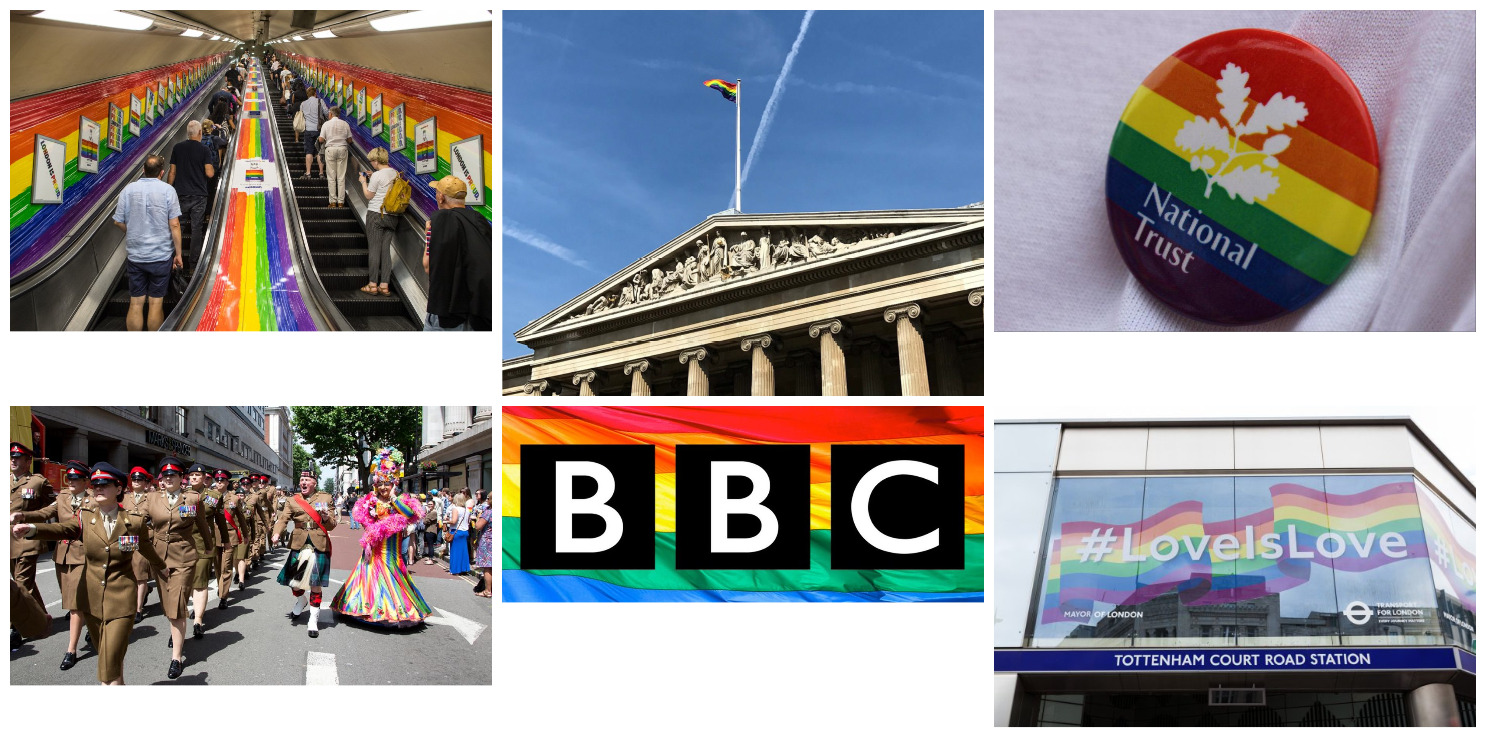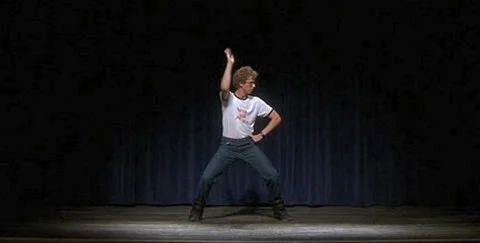Gay Pride shows how Christian our culture still is
It was when I took the escalator in Tottenham Court Road station that I realized quite how much Gay Pride has been embraced as a national festival. The entire tube station was festooned in rainbow colours, like a SuperMarioKart racetrack. Outside, a huge sign read Love is Love.
Can you imagine a tube station blaring out any other social or ethical message to the same extent? Equal pay for women? Care for the environment? Love of God? I realized that Gay Pride / LGBTQ rights has gone in 50 years from being a very marginal and unpopular issue, to being a foundational dogma of our secular, liberal society.
It's no longer one view among many views which a reasonable person might hold (like being a carnivore or supporting prison reform). It has been taken out of the forum of debate, and become part of the main code of our culture, un-editable.
50 years ago, a handful of brave politicians stuck their neck out to campaign for the de-criminalization of homosexuality, and did so only by insisting sick deviants deserved pity rather than prison.
Today, Gay Pride has official government support - a friend from Number 10 told me the prime minister must make a supportive speech on Pride, as she must on Eid, Easter, Diwali and Chanukah. If an MP or councillor suggests homosexuality is not natural or acceptable then, like Tim Farron, they're unlikely to be in frontline politics for long.
Other pillars of the establishment hoist the rainbow flag: the foreign office, the police force, the fire service, the army, the NHS, the British Museum, the National Trust. The BBC commissioned a series of programmes, Gay Britannia. I'm surprised we don't drop rainbow bombs on ISIS.
If you're one of the 12-25% of the population who still believe homosexuality should not be accepted, or who disapprove of gay marriage, you may be miffed. You may think the secular, liberal state isn't really neutral, that your opinion has been declared invalid and illegal.
Well…that's the way it goes. This issue has been taken up by our society as a way we define ourselves, it's become part of the story we tell ourselves about who we are. Myth-making is a strange, non-rational process, and for this round you're on the wrong side of it.
Why have LGBTQ right become such a foundational myth for our society, when LGBTQ people are only 10% of our society? Why are transgender rights given so much airtime when transgender people constitute roughly 0.1% of the population?
Perhaps it's because championing LGBTQ rights is a way for post-religious societies to reassure themselves they're still morally good, even though they're post-religious. We can congratulate ourselves that we're better than old, homophobic, Christian Europe or nasty, Islamic fundamentalist cultures - we let love rule! We voted a drag queen the winner of Eurovision! Fuck you, traditional religious societies: we're secular Europe and we're fabulous. Seen this way, Gay Pride is a way for secularists to celebrate Europe coming out of the closet of Christianity.
It's true that Christianity has attacked homosexuality for millennia, and that societies become more accepting of homosexuality as they become less Christian (see the Pew Research chart below). And I also believe (as you probably do too) that LGBTQ liberation is something to celebrate - it's a moral achievement, part of humans' millennia-long expansion of love and respect, a step forward that happened despite the church, not because of it.
Seen another way, however, the festival of Gay Pride shows that post-religious societies are not post-sacred. Gay pride is a sacred festival - a celebration of love, pride and dignity as sacred values (complete with anthems, costumes, bunting and unicorns). Pride also shows that post-Christian societies are still very Christian in their ideals and emotional narratives. Yes, Gay Pride is a very Christian festival. It shows that secular liberal culture is still improvising its sacred rituals out of the Christian fancy-dress box.
Why Gay Pride is such a Christian festival
The message of Pride - social liberation from fear and oppression - is an improvisation of the old standard from Exodus. One day my people will be free. It's a riff from an earlier improvisation by the civil rights movement of the 1960s. When you listen to gay house music of the late 1980s, made at the height of the AIDS epidemic, it sounds like Martin Luther King with an 808 beat. So many of the early gay house anthems are soaring gospel epics, singing of The Promised Land, praying for Freedom, longing for Some Day when Your Love will lift us up and we will Finally be Free.
The message of Pride is also one of personal liberation - the individual's journey through alienation and oppression until they find the True Me. We in post-60s liberal society love that story and tell it over and over.
It's originally a Christian story. Jesus finds himself and becomes Christ. Saul becomes Paul. Augustine finally gets together with God. How early Christians must have shocked their parents and scandalized their society. 'Mum, Dad, I've got something to tell you. I'm a Christian.' You're a what?? Are you sure it's not just a phase?
The drama of the Christian personal revelation - the first love, the inner wrestling, being born-again, then coming out despite the risk - is something new in antiquity. It's not Greek or Roman at all. Compare Augustine's Confessions to Marcus Aurelius' Meditations.
Marcus is not really interested in himself as an individual. He's a collection of beliefs illuminated by reason. He uses his journal to analyze his beliefs and habits, and bring them into accord with the cosmic rationality of the Logos. Not much drama there. Augustine's Confessions, by contrast, is an intensely emotional journey of transformation in which Augustine encounters a loving God, resists Him, surrenders to Him, becomes a new person, and then comes out of the closet as a Christian in the Roman empire. It is a highly dramatic, highly emotional story of personal liberation. Very Gay Pride.
It's customary today for Christians to condemn the individualism of secular liberal society, but as Larry Siedentrop and others point out, Christianity invented the individual and bequeathed us secular individualism. In Christianity, the individual person is a unique soul, loved and desired by a personal God, and they remain a person even in the afterlife. The individual soul and its personal choices are more sacred than the social order. This shocking idea is implicit in Greek philosophy but only really developed in Christianity. Any person is sacred? Even a woman? Even a slave? Even a black man? Even a homosexual? Yes, all are sacred, unique, fabulous, loved by God.
This idea immediately creates a tension between the individual and the community. Jesus tells his mother, I know you not. He abandons his family, abandons carpentry, he and his disciples drop out of society and hit the road to find the Real Me, the Kingdom of Heaven within. Christian pastors condemned baby-boomers' restless search for personal authenticity, but if you want to find the roots of Easy Rider, look in the Gospels.
Of course, early Christianity was both radically individualist (my personal journey to God is more important than the social order) and radically communitarian. The born-again Christian is welcomed into the new family of the loving Christ, they celebrate in the love-feast, there's lots of hugs, tears, kissing and so on. They stand in front of the community and tell their testimony. I was lost but now I'm found. I'm coming out. Cue wild applause. Very Gay Pride.
Secular liberalism, and particularly the expressive individualism of the last few decades, did not abandon this Christian narrative of personal liberation, it just secularized it.
Our favourite trope, repeated in endless movies, is the awkward outsider who eventually learns to love themselves, and then, in the climax of the movie, they reveal their new, authentic, fabulous self to the public, through a speech, a song, a dance or something. At first the public isn't sure how to react, but then they react with wild applause. The new authentic identity of the hero is publicly affirmed. The ugly duckling is confirmed as a swan.
This trope is repeated, with variations, in films including Napoleon Dynamite, Dirty Dancing, Little Miss Sunshine, Mean Girls, About a Boy, Wedding Crashers, Jerry McGuire, Billy Elliott, Silver Linings, The Full Monty. It's also endlessly repeated in reality TV talent shows like Britain's Got Talent: Susan Boyle waddles on stage and then reveals herself as a nightingale.
I think that's something of the ethos of Gay Pride. I used to be bullied at school but now here I am, I'm out and fabulous! It's post-Christian - but the part of Loving God is now played by the Public.
Perhaps there is a tension in that recasting. God loves us no matter how rubbish we are (so Jesus says anyway). But the Public? They love us if we're entertaining and personable. And if we're not? Will they tire of us if our performance drags, if our make-up runs, if our jokes fall flat, if the lines start to show on our face?
Can the public's love pick us up when we are broken? We hope so. That's why we pour our hearts out on social media - I have depression, I have bulimia, I self-harm. This is the real, inner me, now love me. Is internet love reliable? Not entirely.
Love is Love...But as Haddaway asked, what is love? Is it something we can give ourselves? Yes, but sometimes we can't. Is it something we get from our parents? Ideally, but not always. Is it something the public can give us? Yes, but sometimes they don't. Is it something that genuinely transcends the social order and the fickleness of public opinion, something that transcends how well we perform, how well we strut our stuff on the catwalk of life?
I hope so. I still think there is something in you and me that is more than me and you - a spark of the infinite loving I AM which some call God - and it is this spark which makes us all both worthy of love and capable of giving love. It is the sparkling glitter of consciousness. which exists in men, women, children, slaves, Jews, Gentiles, atheists, homosexuals, and other animals.
So, Christians, if the Gay Liberation movement annoys you, blame St Augustine. Blame Jesus. Or, alternatively, celebrate Pride as the latest riff in a long history of Christian and post-Christian improvisation. I wonder in what unimaginable manger the Holy Spirit will turn up next?
If you liked this piece, please take a minute to support my blog, here. My blog depends on small donations from readers.






